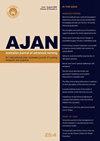社区执业护士的支持与慢性心力衰竭患者更好的自我护理行为和生活质量有关
IF 1.3
4区 医学
Q3 NURSING
引用次数: 1
摘要
目的:评估由执业护士实施的基于社区的慢性心力衰竭管理计划对自我护理行为、生活质量和再次入院的影响。背景:慢性心力衰竭是一种与高住院率相关的复杂疾病。然而,通过更好的自我管理和获得专业医疗支持,许多慢性心力衰竭患者的住院可能是可以预防的。执业护士拥有先进的执业范围,使他们有资格支持慢性心力衰竭患者。研究设计和方法:本研究比较了参加过执业护士主导的慢性心力衰竭管理服务(SmartHeart)(n=58)的患者与接受常规护理(n=58,但没有执业护士支持)的患者的自我护理行为和生活质量。自我护理行为采用自我护理心力衰竭指数进行评估,生活质量采用简表-36和明尼苏达州心力衰竭患者问卷进行评估。使用数据链接从医疗记录中提取住院记录。结果:接受执业护士支持的患者有更好的自我保健行为(p<0.05)、36项简表的精神成分汇总(p<0.05)和心力衰竭特异性生活质量(p<0.05)。接受执业护士支助的组的所有原因住院时间延迟(p<0.05),住院时间缩短(p<0.05),但与慢性心力衰竭相关的入院人数没有差异。讨论:慢性心力衰竭支持计划,在社区环境中运作,由执业护士提供,加强自我护理,改善心理社会健康,缩短住院时间。结论:与常规护理相比,执业护士提供的慢性心力衰竭管理可以改善自我护理行为和生活质量,并减少住院人数。关于这个话题已经知道了什么?慢性心力衰竭是一个复杂的健康问题,需要根据个人情况进行疾病特异性管理。然而,许多慢性心力衰竭患者没有得到足够的支持来控制他们的病情。这篇论文补充了什么:由执业护士在初级保健中提供的慢性心力衰竭管理服务改善了自我管理和生活质量,与单独的常规护理相比,住院率更低。本文章由计算机程序翻译,如有差异,请以英文原文为准。
Community-based nurse practitioner support is associated with better self-care behaviour and quality of life in patients with chronic heart failure
Objective: To evaluate the effects of a community based chronic heart failure management program, delivered by nurse practitioners, on self-care behaviour, quality of life and hospital readmissions. Background: Chronic heart failure is a complex condition associated with high rates of hospital readmissions. However, many hospitalisations in patients with chronic heart failure are potentially preventable with better self-management and access to specialised healthcare support. Nurse practitioners have an advanced scope of practice, making them well credentialed to support patients with chronic heart failure. Study design and methods: This study compared self-care behaviour and quality of life in patients who had attended a nurse-practitioner led chronic heart failure management service (SmartHeart) (n=58) compared with patients receiving usual care (n=58), but no nurse practitioner support. Self-care behaviour was assessed using the Self Care Heart Failure Index and quality of life was assessed using the Short Form-36 and Minnesota Living with Heart Failure Questionnaire. Hospitalisation records were extracted from medical records using data-linkage. Results: Patients who received nurse-practitioner support had better self-care behaviour (p<0.05), mental component summary of the Short Form-36 (p<0.05) and heart failure specific quality of life (p<0.05). All-cause hospitalisations were delayed (p<0.05) and length of stay was shorter (p<0.05) in the group receiving nurse practitioner support, but there were no differences in chronic heart failure related admissions. Discussion: A chronic heart failure support program, operating in a community setting and delivered by nurse practitioners, enhanced self-care, improved psychosocial health and reduced time in hospital. Conclusion: Chronic heart failure management delivered by nurse practitioners can improve self-care behaviour and quality of life, and reduced hospital admissions, compared with usual care.
What is already known about the topic?
Chronic heart failure is a complex health issue requiring disease-specific management that needs to be tailored to the individual. However, many patients with chronic heart failure don’t receive adequate support to manage their condition.
What does this paper add:
A chronic heart failure management service, delivered in primary care by nurse practitioners, improved self-management and quality of life and was associated with a lower rate of hospitalisations compared with usual care alone.
求助全文
通过发布文献求助,成功后即可免费获取论文全文。
去求助
来源期刊
CiteScore
2.30
自引率
7.10%
发文量
27
审稿时长
>12 weeks
期刊介绍:
The Australian Journal of Advanced Nursing publishes a wide variety of original research, review articles, practice guidelines, and commentary relevant to nursing and midwifery practice, health- maternity- and aged- care delivery, public health, healthcare policy and funding, nursing and midwifery education, regulation, management, economics, ethics, and research methodology. Further, the journal publishes personal narratives that convey the art and spirit of nursing and midwifery.
As the official peer-reviewed journal of the ANMF, AJAN is dedicated to publishing and showcasing scholarly material of principal relevance to national nursing and midwifery professional, clinical, research, education, management, and policy audiences. Beyond AJAN’s primarily national focus, manuscripts with regional and international scope are also welcome where their contribution to knowledge and debate on key issues for nursing, midwifery, and healthcare more broadly are significant.

 求助内容:
求助内容: 应助结果提醒方式:
应助结果提醒方式:


